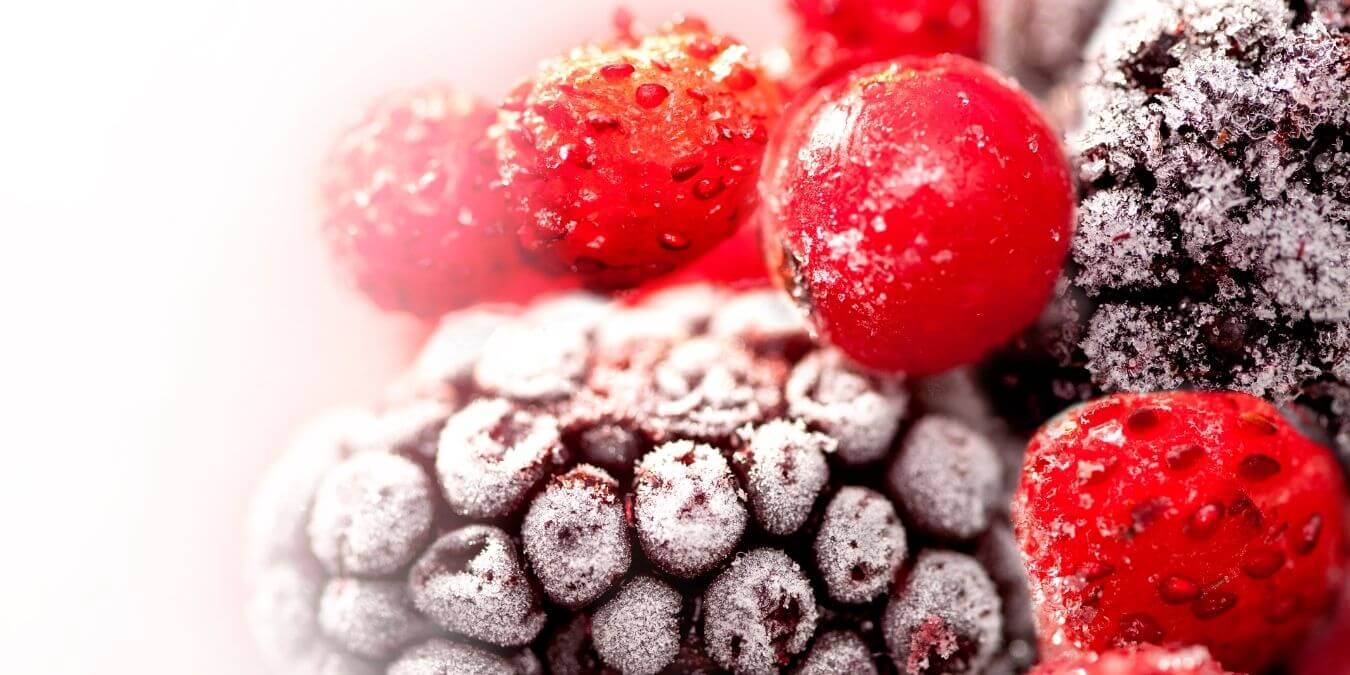Yes, you can juice frozen fruits! Frozen fruit is a great option for juicing because it’s often cheaper than fresh fruit, and it doesn’t require any prep work (i.e. no peeling or chopping).
Juice made from frozen fruits will have a thicker consistency than juice made from fresh fruit, but some people prefer this creamy texture.
If you ever find yourself in a situation where you can’t seem to find any fresh fruits to juice, or you have some frozen fruit that you want to use up, don’t worry! You can still make delicious and healthy juice with what you have on hand.
How To Juice Frozen Fruit
If you’re looking to get the most out of your frozen fruit, or if you’re just curious about the process, here’s a guide on juicing frozen fruits. There are a few things to keep in mind when juicing frozen fruit, and we’ll go over all of them so that you can get the best results possible.
Use Extra Frozen Fruit
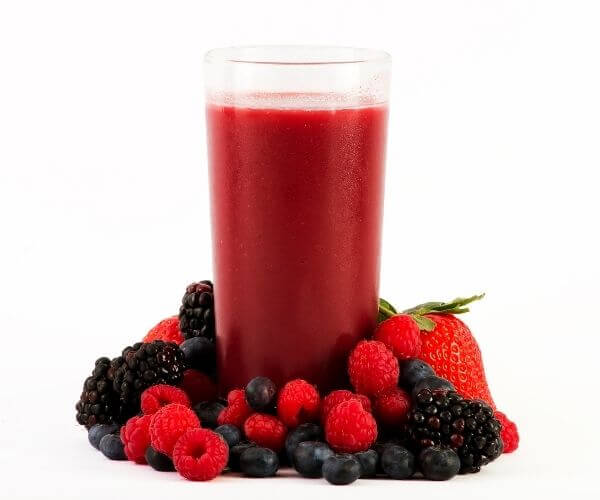
The first thing to keep in mind is that you’ll need a little more fruit than you would if you were juicing fresh fruit. This is because frozen fruit has higher water content, and thus yields less juice. For this reason, it’s best to use about 1 1/2 cups of frozen fruit for every cup of juice you want to make.
Thawing Frozen Fruits
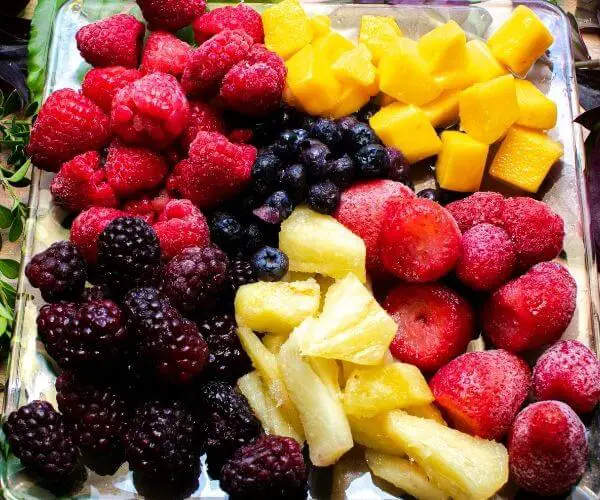
Thawing frozen fruit can take as little as 30 minutes. However, for best results, it is recommended that you thaw it overnight in the refrigerator. You can either keep it in the bag or put frozen fruit on a tall-sided baking sheet the refrigerator.
This will help to ensure that all of the fruit is softer and ready for juicing. But don’t be surprised if there is a lot of extra liquid from thawing.
Prep the Frozen Fruit
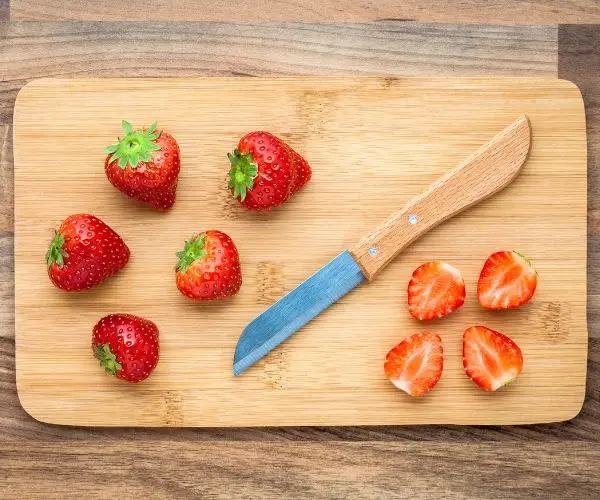
Next, you’ll need to prep your fruit. Once all the fruit is thawed, cut it into smaller pieces that will fit easily into the juicer. If your fruit is in large pieces, you’ll want to cut it into significantly smaller chunks so that it fits into your juicer more easily. If your frozen fruit is already in small pieces, or if it’s in a juice blend, you can skip this step.
Assuming you have a manual juicer, remove any fruit that is frozen solid to thaw more easily. Once all the fruit is thawed, again, you will cut the fruit into small pieces that will fit easily into the juicer. If the fruit is very ripe, it may need to be mashed slightly to extract the juice fully.
Juicing Your Frozen Fruit
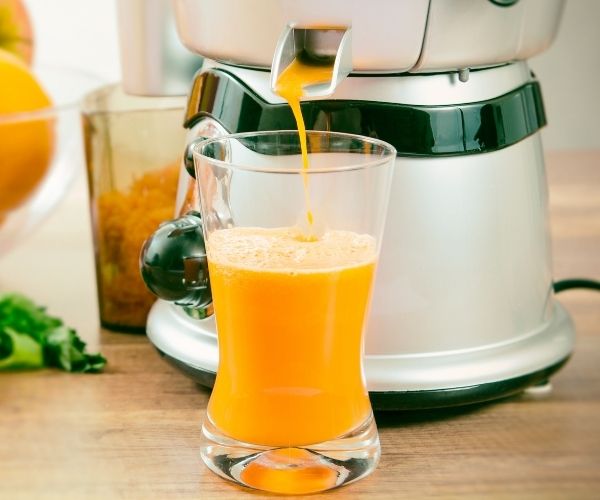
Once your fruit is prepped, it’s time to start juicing. If you’re using a manual juicer, you’ll need to use more force than you would with fresh fruit. It’s helpful to alternate between hard and soft fruits so that the auger doesn’t get stuck. If you’re using an electric juicer, simply follow the instructions for juicing frozen fruit.
If you are using a masticating juicer, also known as single gear juicers, these juicers have a single auger that crushes and pulverizes the fruits and vegetables, similar to how you would chew them. This process extracts more juice and nutrients from the produce, resulting in a richer and more flavorful juice.
Pros and Cons of the different types of electric juicers
There are a few different types of electric juicers on the market, each with its own set of pros and cons.
Centrifugal Juicers
Centrifugal juicers are the most common type of juicer. They’re also the most affordable. These juicers work by using a rapidly spinning blade to extract juice from fruits and vegetables. The downside to centrifugal juicers is that they can be noisy and they don’t always extract as much juice as other types of juicers.
Masticating Juicers
Masticating juicers are a more expensive option, but they’re also more efficient at extracting juice. These juicers work by slowly grinding fruits and vegetables to release their juice. Masticating juicers are also much quieter than centrifugal juicers.
Triturating Juicers
Triturating juicers are the most expensive type of juicer, but they’re also the most efficient. These juicers work by slowly pressing fruits and vegetables to extract their juice. Triturating juicers are very quiet and can extract a higher percentage of juice than other types of juicers.
Does juicing frozen fruit taste as good as juicing fresh fruit?
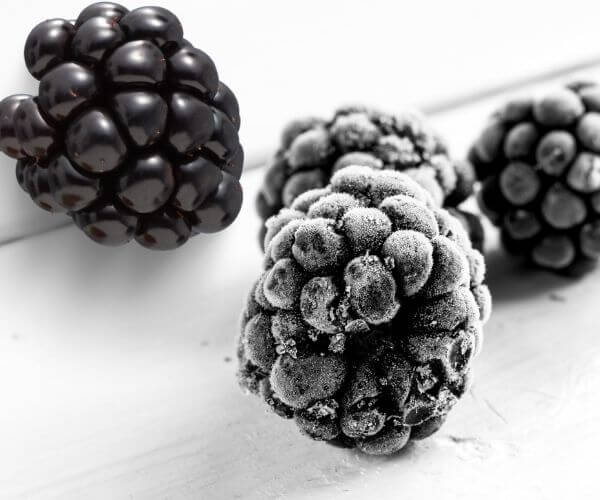
The answer to this question is subjective, as everyone has different tastes. Some people find that they prefer the taste of juice made from fresh fruit, while others find that they don’t notice a difference. Ultimately, you should try to use frozen fruit and see what you think!
Some things to keep in mind, however, are that frozen fruit juices typically contains fewer vitamins and minerals than fresh fruit juice, as nutrients can be lost during the freezing process. So the nutritional value may be lessened.
Also, frozen fruit juice is sometimes made with added sugar or artificial sweeteners, while fresh fruit juice is usually naturally sweetened. I like to stick with organic frozen fruits without added sugar to keep things healthier. But keep this in mind when considering ingredients to add so there’s not too much sugar.
Do you need to thaw it first or can you juice it when the fruit is frozen solid?
The simplest answer to this question is no, you don’t necessarily have to thaw it. However, it can create some complications while juicing and add some time to the process.
Some fruits, such as grapes, can be juiced while they’re frozen solid. However, other fruits will need to be thawed first to yield more juice. Watered-down juice presents a significant difference in taste quality and the result will not be as flavorful.
If you’re unsure whether or not your fruit needs to be thawed, it’s best to err on the side of caution and thaw it first for best results.
What kind of tools will I need to juice frozen fruit?
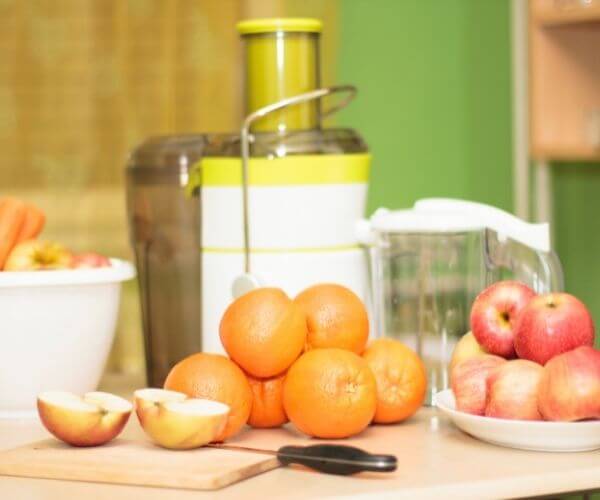
To juice frozen fruit, you’ll need a juicer, a cutting board, and a knife. If you’re using a manual juicer, you may also need a masher. And if you’re using an electric juicer, simply follow the instructions for juicing frozen fruit.
The knife and the cutting board are used in the initial steps, to break down the frozen fruit so that it can be juiced more easily and presents fewer clogs while it is being juiced.
Juicer Considerations
There are several key differences between a manual and an electric juicer.
First, a manual juicer typically requires more effort to use, as you need to manually crank the handle to extract the juice.
An electric juicer, on the other hand, is much easier to use as it does all the work for you. Electric juicers also tend to be more expensive than manual juicers. Finally, electric juicers typically have a higher juice yield than manual juicers. This means that you’ll get more juice out of an electric juicer, meaning less wastage.
Will juicing frozen fruit yield as much juice as fresh fruit does?
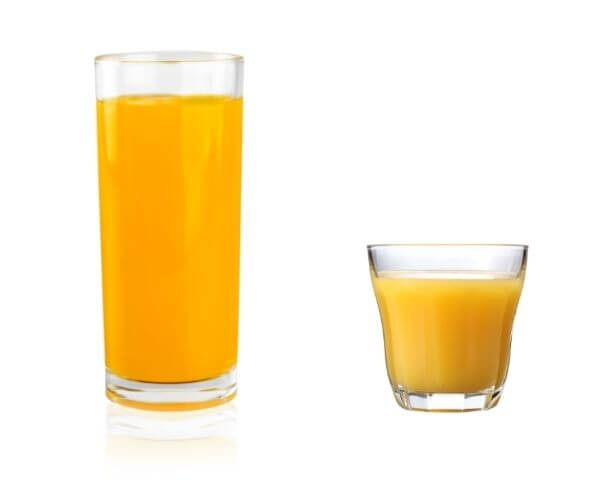
No, juicing frozen fruit will not yield as much juice as fresh fruit. This is because frozen fruit has a higher water content, which means that there is less juice to be extracted.
Furthermore, frozen fruit produces less juice than fresh fruit because when fruits are frozen, their cells rupture and release their water content. This makes the frozen fruit less juicy than its fresh counterpart. Additionally, frozen fruits tend to be pulpier, which can also affect the juiciness of the final product. The pulp is the fleshy part of the fruit that contains the seeds, and does not contain juice.
The juice is in the cells that make up the flesh of the fruit. These cells are filled with a liquid we call juice. The juice is made up of water, sugar, and other chemicals. Fruits have different flavors depending on the type of sugar that is in their juice.
For these reasons, it’s best to use about 1 1/2 cups of frozen fruit for every cup of juice you want to make.
Are there certain fruits that are better for juicing when frozen than others?
Some fruits, such as grapes, yield more juice when they’re frozen. Grapes are predominantly made up of water, and the water in grapes is what gives them their juice. When grapes are frozen, the water inside them turns to ice and expands. This expansion breaks open the grape cells and releases more of the juice.
Other fruits, such as oranges, yield less juice when they’re frozen. Oranges are very pulpy fruit, and as previously mentioned, there is no juice in the pulp of a fruit. Another reason why oranges yield less juice when frozen is that the liquid inside the fruit expands as it freezes. This causes the cells in the orange to rupture, which results in a loss of juiciness. In addition, freezing damages the structure of the fruit, making it more difficult for the juicer to extract its juice.
Ultimately, it’s up to you to decide which type of fruit you prefer to juice. Certain recipes are perfect for more watered-down juice and allow for other flavors to shine through, while others call for a much more prominent flavor of the juice.
What if the fruit is freezer burned?
Yes, you can still juice freezer-burned fruit. However, the taste of the juice may be affected. Freezer burn is a type of damage that can occur to frozen fruit when it is not stored properly. This damage is caused by the loss of moisture from the fruit, which can cause it to become dried out, discolored, and even mushy.
While freezer burn does not make fruit unsafe to eat, it can significantly impact its quality and flavor. To prevent freezer burn, be sure to store your fruit in an airtight container in the freezer.
Freezer burn can occur on any type of frozen fruit but is more likely to happen to fruits that are lower in moisture content. Some of the most common fruits that are susceptible to freezer burn include strawberries, raspberries, blackberries, and blueberries. When these fruits are exposed to air, their moisture begins to evaporate, causing them to become dried out. In addition to losing moisture, frozen fruit can also lose flavor and nutrients when it is damaged by a freezer burn.
If you’re concerned about the taste of your juice, it’s best to err on the side of caution and discard any fruit that is freezer burned.
Can you juice frozen vegetables?
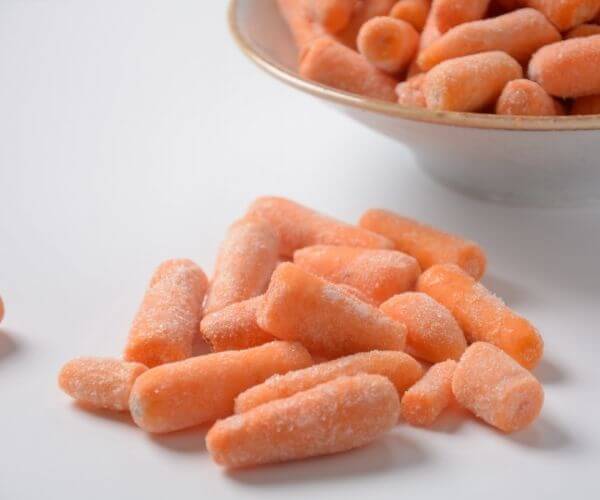
Yes, you can juice frozen vegetables. The process to follow is similar to using frozen fruits. Keep in mind that fresh vegetables will be tastier and and may have higher nutritional value than frozen vegetables (though this depends on the quality of your fresh vegetables).
You will likely have better luck when you use frozen fruits for juicing. Vegetables like carrots will taste significantly different when frozen. But again, it is possible to juice frozen vegetables, it just takes some experimentation!
Conclusion
So if you’ve wondered, can you juice frozen fruit, you should now have a good idea of how to do so. It is completely possible and, in some ways, preferred.
Just make sure to add a little extra, select the right juicer for your specific needs, and be sure to avoid freezer-burned fruits, as it poses the risk of affecting the taste quality too much. I hope, with the information detailed above, you can now enjoy the sweet juice from your frozen fruits!
